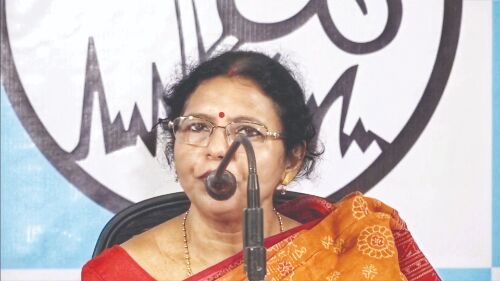More than 9L caste certificates issued, 69 development schemes implemented

Kolkata: The state government has so far issued more than 9 lakh caste certificates and in the last 10 years it has taken comprehensive schemes for the all-round development of people belonging to the Scheduled Castes and
Scheduled Tribes communities, Promita Mondol, MP,
Trinamool Congress (TMC) said on Friday.
From Kanyashree to Gatidhara, the Mamata Banerjee-led government has implemented 69 developmental schemes from 2011 to 2020, the MP said, adding that after coming to power in 2011, Chief Minister Mamata Banerjee has set up Birsha Munda University and BR Ambedkar University in the area dominated by Scheduled Castes and
Scheduled Tribes people. The Matua Development Board has been set up for the development of the Matua
Community.
She said around 35,000 tribal families engaged in the collection of Kendu leaf gatherers have been looked after and those attaining the age of
60 years will get retirement benefit. The 'Tapashili Bandhu' scheme and 'Jay Jahar' scheme meant for the Scheduled
Castes and Scheduled Tribes, people have got immense benefits.
"Under these schemes, the SC and ST people who are not entitled under any other social security pension scheme are given a monthly pension of
Rs 1,000. These are two unique schemes and have helped the people immensely," she remarked.
Mondal said the state government has made Santhali, Rajbangshi and Kamtapuri official languages and have taken measures to preserve the culture and tradition of these three communities.
She alleged that atrocities on Scheduled Castes and
Scheduled Tribes women in Uttar Pradesh, Bihar, Madhya Pradesh and Rajasthan are going up alarmingly.
"The Dalit women are tortured and gangraped in these states. But in Bengal they are being looked after and atrocities against them do not happen here," Mondal said.
The MP said that in Bengal people are living in peace and harmony and there is mutual respect among the members of different communities.
In the recently released Global Hunger Index, India ranks lower than most of its neighbours – Pakistan, Bangladesh and Sri Lanka. "I had raised the issue in Parliament. But, Smriti Irani responded that the data uploaded on the website is wrong."
The percentage of women workforce in India decreased from 42.7 per cent in 2004-2005 to 23.3 per cent in 2017-2018. As per the Global Gender Index Gap, which takes into account the education, health and political scenario of a country, India ranks 150th out of 153 countries in the health and survival parameter.
On the contrary, Bengal government has implemented schemes like Kanyashree to empower women.
In Bengal, 50 per cent seats were reserved for women in panchayat bodies.
Trinamool Congress has also been demanding 33 per cent reservation for women in the parliament.
The MP added that some outsiders are trying to disturb the peace and urged people to remain ever vigilant against these evil forces.



